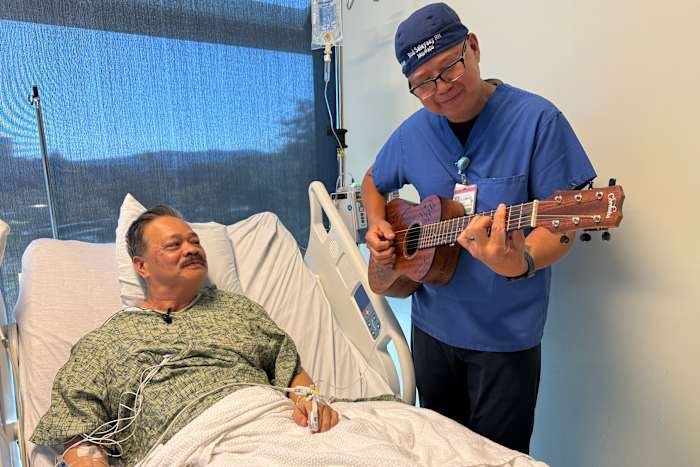Heavy metal legend Ozzy Osbourne’s death at age 76 has put the spotlight on Parkinson’s disease, a condition he publicly battled for years. As the Orlando community mourns and reflects on his legacy, there’s renewed interest in understanding what Parkinson’s is, its symptoms, treatment options, and how it impacts people in Central Florida. Here’s what Orlando residents need to know about this complex neurological disorder.
What is Parkinson’s Disease?
Parkinson’s disease is a progressive neurodegenerative disorder that primarily affects movement. It occurs when nerve cells in the brain, particularly those producing dopamine, become damaged or die. This leads to symptoms such as tremors, stiffness, slowness of movement, and balance problems.
While the exact cause of Parkinson’s is unknown, age, genetics, and environmental factors all play a role. Most people diagnosed are over the age of 60, though younger individuals can be affected. In Ozzy Osbourne’s case, he announced his diagnosis in 2020, bringing attention to the struggles faced by many living with the disease.
According to the Parkinson’s Foundation, nearly one million Americans live with the condition—a number expected to rise as the population ages, including here in Orlando where the community of seniors is growing rapidly.
Recognizing the Symptoms
The symptoms of Parkinson’s disease can vary widely, but some of the most common signs include:
- Tremors: Shaking, often starting in the hands or fingers
- Rigidity: Muscle stiffness that can limit movement and cause pain
- Bradykinesia: Slowness of movement, making everyday tasks difficult
- Postural Instability: Impaired balance and coordination, increasing the risk of falls
Other symptoms may include changes in speech, writing, and facial expressions, as well as depression and sleep disturbances. Ozzy Osbourne openly discussed his own difficulties with mobility and the emotional toll of Parkinson’s, helping to break the stigma around the disease.
In Orlando, healthcare professionals urge residents to seek medical advice if they experience any of these symptoms, as early diagnosis and intervention can significantly improve quality of life.
Living with Parkinson’s in Orlando
Parkinson’s disease is a lifelong condition, but many people lead full and active lives with the right support. Orlando offers a range of resources for those affected:
- Specialized Care: The Orlando Health Neuroscience Institute and AdventHealth’s Parkinson Outreach Center provide neurologists, therapists, and support groups tailored to Parkinson’s patients.
- Support Groups: Local organizations like the Parkinson Association of Central Florida offer support meetings, educational events, and exercise classes.
- Community Awareness: Events such as the “Moving Day Orlando” walk help raise funds and awareness for Parkinson’s research and services.
Family members and caregivers also play a vital role. Many Orlando families have found comfort and practical advice through local support networks, helping them navigate the challenges of caregiving.
Current Treatments and Research
There is no cure for Parkinson’s disease, but there are several effective treatments to manage symptoms:
- Medication: Drugs like levodopa can help replenish dopamine and improve movement.
- Physical Therapy: Exercise and specialized therapies can enhance mobility and reduce stiffness.
- Surgical Options: For some, procedures like deep brain stimulation (DBS) can offer significant relief.
Orlando is home to clinical trials and research initiatives aimed at better understanding Parkinson’s and finding new therapies. Residents can participate in studies through local hospitals and universities, helping to advance the science for future generations.
With ongoing research, there is hope for better treatments and, ultimately, a cure. Public figures like Ozzy Osbourne have inspired many to contribute to Parkinson’s charities and research, strengthening the fight against this disease.
Raising Awareness and Supporting Each Other
Ozzy Osbourne’s openness about his diagnosis shined a light on the realities of Parkinson’s disease. His journey underscored the importance of compassion, support, and advocacy. In Orlando, the community can honor his legacy by learning more about Parkinson’s, supporting local organizations, and reaching out to those affected.
If you or a loved one has been diagnosed with Parkinson’s, remember that help is available. Connecting with others can ease the burden and provide valuable information on managing daily life.
Conclusion
Ozzy Osbourne’s passing is a reminder of the profound impact Parkinson’s disease can have—not just on individuals, but on families and communities like ours in Orlando. By raising awareness, supporting ongoing research, and fostering a compassionate environment, we can make a difference in the lives of those affected.
Have you or someone you know been touched by Parkinson’s disease? Share your experiences, thoughts, or questions in the comments below. Your voice can help others in the Orlando community feel less alone and more empowered.
















